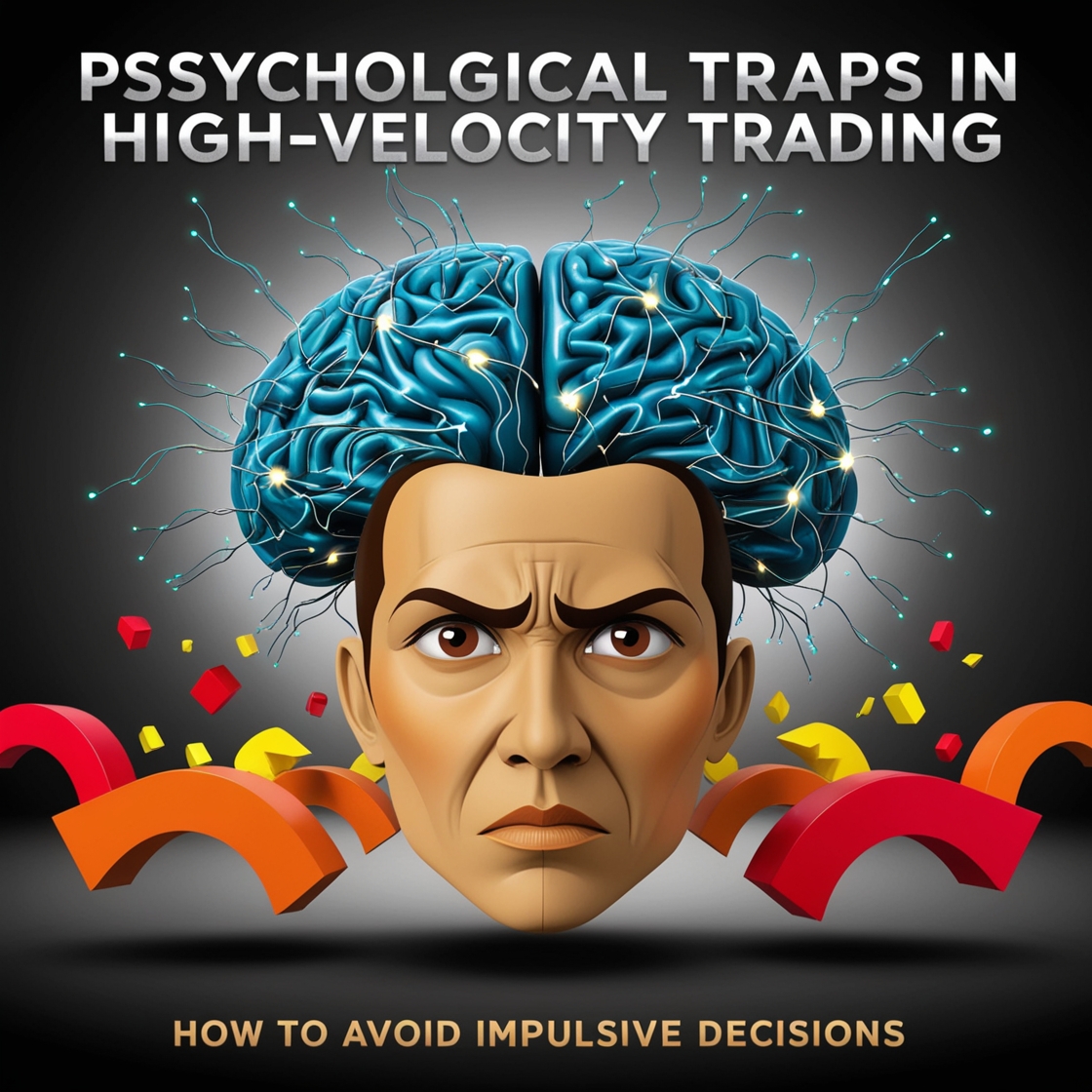Introduction
High-velocity trading, also known as high-frequency trading (HFT), involves executing trades at lightning speed to capitalize on small price changes. While this method can yield high rewards, it comes with an equally high risk: psychological traps that cause impulsive decisions. Traders in high-pressure environments often find themselves influenced by emotions, leading to costly mistakes.
In this article, we’ll explore the most common psychological pitfalls in high-velocity trading and provide actionable strategies to overcome them.
Understanding High-Velocity Trading
Definition and Key Features
High-velocity trading involves rapid execution of trades using advanced algorithms and technology. Traders operate in fractions of a second to exploit market inefficiencies.
Importance of Speed and Decision-Making
In HFT, speed is everything. Delayed decisions can mean lost opportunities or financial losses. However, this emphasis on speed often pushes traders into making impulsive choices.
The Role of Psychology in High-Velocity Trading
How Emotions Influence Trading Decisions
Trading isn’t purely logical. Stress, greed, and fear can cloud judgment, leading traders to act irrationally.
The Connection Between Stress and Performance
High-speed environments create immense mental pressure. Stress hampers decision-making, causing traders to second-guess or overreact.
Common Psychological Traps in High-Velocity Trading
- Impulsiveness
- Overconfidence Bias
- Fear of Missing Out (FOMO)
- Loss Aversion
- Herd Mentality
These traps undermine rational thinking and lead to poor trading outcomes.
The Impulsiveness Trap
Causes of Impulsive Decisions in Trading
Impulsive decisions arise from:
- Pressure to act quickly
- Fear of missing out on profits
- Emotional reactions to market movements
Consequences of Impulsivity
Acting without a clear strategy often results in significant financial losses.
Overconfidence Bias
Why Traders Overestimate Their Abilities
Success can make traders believe they are invincible. Overconfidence leads to:
- Excessive risk-taking
- Ignoring market warnings
Signs You Are Falling into Overconfidence Bias
- You dismiss the importance of research
- You increase your trading size recklessly
Fear of Missing Out (FOMO)
How FOMO Affects Trading Decisions
FOMO drives traders to chase trends without analyzing them properly. It is fueled by:
- Seeing others profit
- Rapid market gains
Real-Life Examples of FOMO in Trading
Many traders jumped into cryptocurrency booms without research, only to suffer losses later.
Loss Aversion in Trading
Understanding Loss Aversion
Loss aversion refers to the tendency to fear losses more than enjoying equivalent gains.
Why Traders Cling to Losing Positions
Traders often refuse to close a losing position, hoping it will rebound, leading to larger losses over time.
Herd Mentality and Groupthink
How Herd Mentality Affects High-Velocity Traders
When traders blindly follow the crowd, they ignore their analysis and strategy.
Recognizing When You Are Following the Crowd
If you are trading solely because everyone else is, it’s time to reassess.
How to Avoid Psychological Traps in High-Velocity Trading
Self-Awareness and Reflection
Monitor your emotional triggers and understand how they impact your trades.
Developing a Trading Plan
A solid trading plan reduces impulsivity by outlining entry, exit, and risk strategies.
Using Automation and Algorithms
Algorithmic trading minimizes emotional decision-making by executing trades based on pre-set rules.
Taking Breaks to Maintain Clarity
Step away from the screen to reset your mind and avoid burnout.
The Role of Technology in Reducing Impulsive Decisions
Advanced tools like AI-powered analytics and algorithmic trading help traders stay disciplined.
Building Resilience Against Psychological Traps
Practicing Emotional Regulation
Techniques like mindfulness and stress management keep emotions in check.
Learning From Past Mistakes
Analyze your failed trades to identify patterns and improve future decisions.
The Importance of Risk Management
Setting Stop-Loss Limits
Stop-loss orders prevent small losses from becoming catastrophic.
Diversification to Reduce Risk
Spread your investments across different assets to limit exposure.
Seeking Professional Help
How Mentors and Coaches Can Guide You
Experienced traders can provide insights and help you avoid emotional mistakes.
Why Psychological Counseling Might Help
Trading psychology experts can help you manage stress and emotional triggers.
Conclusion
High-velocity trading demands quick decisions, but impulsive choices can be detrimental. By understanding psychological traps like impulsiveness, FOMO, and overconfidence, traders can develop strategies to avoid them. A disciplined approach, coupled with risk management and emotional awareness, ensures sustainable success in the fast-paced trading world.
FAQs
- What is the most common psychological trap in trading?
Impulsiveness and FOMO are among the most common traps that lead to poor decisions. - How can I reduce impulsive decisions in high-velocity trading?
Develop a trading plan, automate trades, and practice emotional regulation. - Does stress affect trading performance?
Yes, stress impairs judgment and increases the likelihood of irrational decisions. - What are some tools to automate trading?
Algorithmic trading platforms and AI analytics tools are widely used for automation. - Why is self-awareness important in trading?
Self-awareness helps you recognize emotional triggers and avoid falling into psychological traps.
